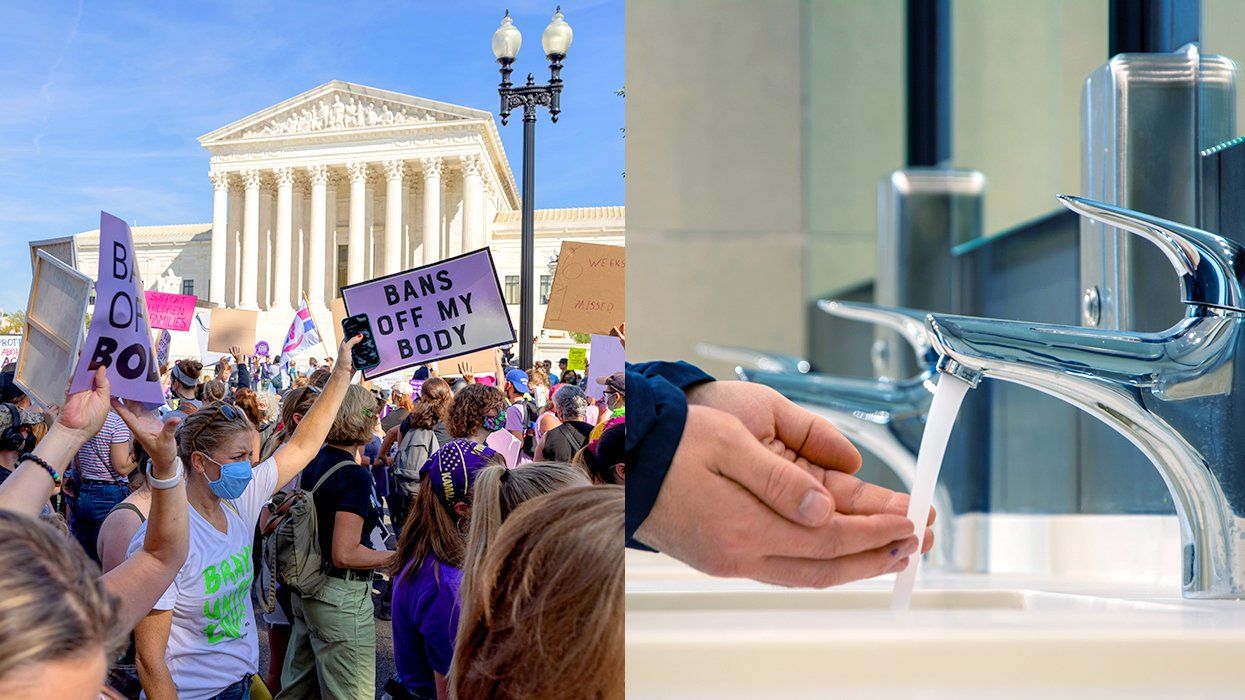On Tuesday, the U.S. Supreme Court made the pivotal decision not to review a case involving transgender students’ access to school restrooms, maintaining a lower court’s ruling that allows transgender students in Indiana to use facilities corresponding to their gender identity.
The case centered around a teenage transgender boy, identified as A.C., who was prohibited from using boys’ restrooms at his former middle school. The justices, without noted dissents, rejected a request from a central Indiana school district to hear the case, leaving unresolved a division among the nation’s federal appeals courts regarding school districts’ authority to enact policies restricting transgender students from using bathrooms aligning with their gender identity, NBC News reports.
Transgender students across the country have initiated lawsuits challenging their school districts’ policies, asserting that these policies violate the 14th Amendment’s Equal Protection Clause and Title IX, the federal civil rights law prohibiting sex-based discrimination.
Related: The Groundwork For a Supreme Court Case on Gender-Affirming Care Is Being Laid Now
However, the Supreme Court has demonstrated a reluctance to become involved in matters related to transgender rights, Reuters reports. In 2021, the court declined to address a transgender bathroom dispute, and last year, it refrained from intervening in West Virginia’s transgender athlete ban. Additionally, in June, the high court refused to disturb a ruling favoring a transgender woman who alleged unlawful deprivation of hormone treatment while in jail.
The Metropolitan School District of Martinsville, supported by 19 Republican state attorneys general, conservative groups, and religious advocacy organizations, hoped their case would prompt the conservative-majority court to intervene.
The lawsuit on behalf of A.C. and his parents was filed in 2021 by the American Civil Liberties Union of Indiana. It contended that A.C. suffered “irreparable harm” while attending John R. Wooden Middle School due to his denial of access to boys’ restrooms and locker rooms. According to court documents, school staff consistently used female pronouns when referring to A.C., despite protests from his mother and stepfather. Additionally, A.C.’s request to join the boys’ soccer team was denied at least twice.
A federal judge granted A.C.’s request for a preliminary injunction in April 2022, asserting that the “overwhelming majority” of federal courts, including the 7th Circuit, had found that Title IX protected transgender students’ rights to use restrooms aligned with their gender identity.
A.C.’s case was later consolidated with another lawsuit involving two transgender boys, identified as B.E. and S.E., who similarly sued their Indiana school district after being denied access to boys’ restrooms. Each of the three boys legally changed their names and amended their birth certificates to identify as male.
A three-judge panel for the 7th U.S. Circuit Court of Appeals noted in August that the plaintiffs were considered boys under Indiana law, making it contrary to state law for the school districts to treat them otherwise. The panel suggested that the Supreme Court might eventually provide more guidance on the issue of transgender rights.





































































Charlie Kirk DID say stoning gay people was the 'perfect law' — and these other heinous quotes